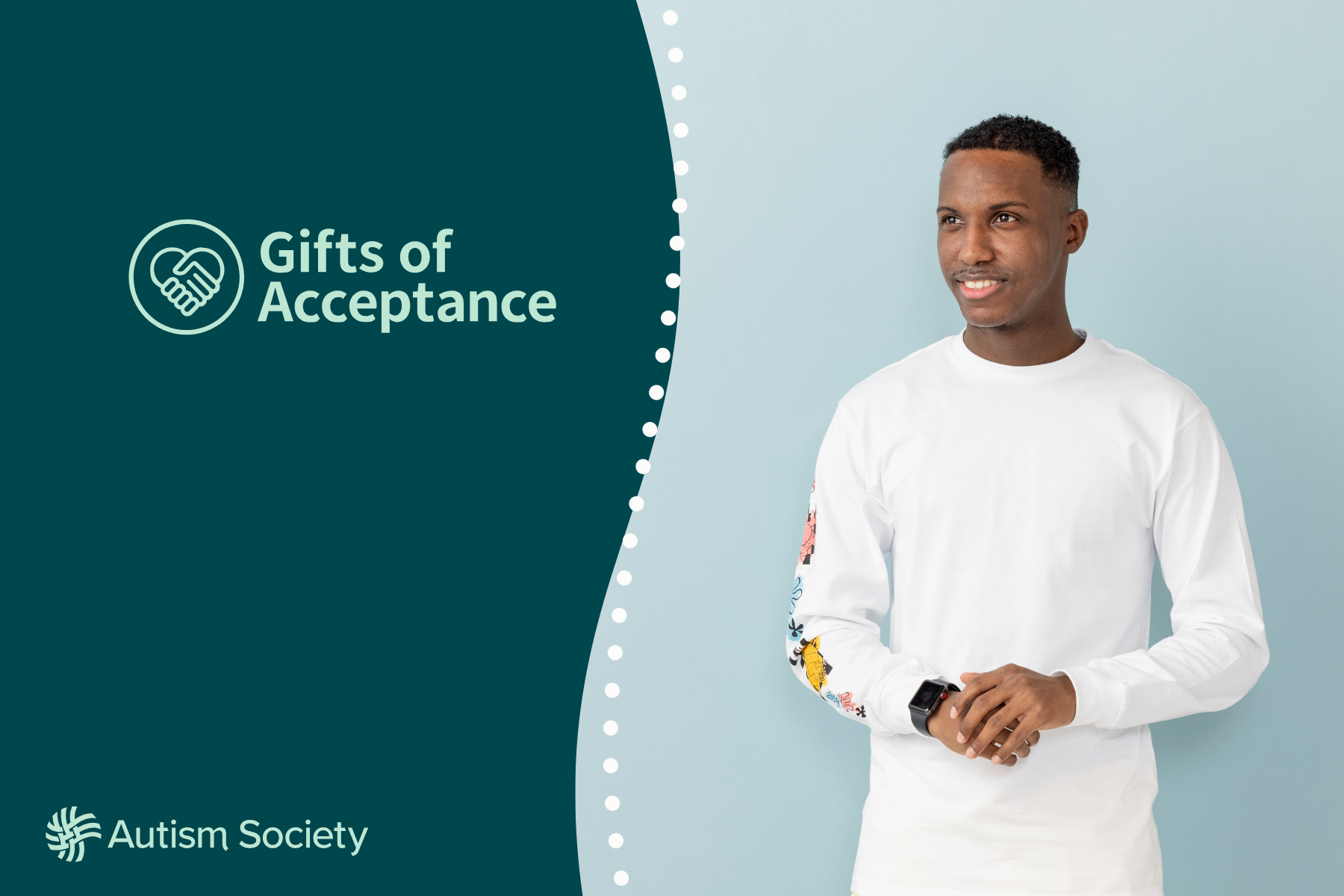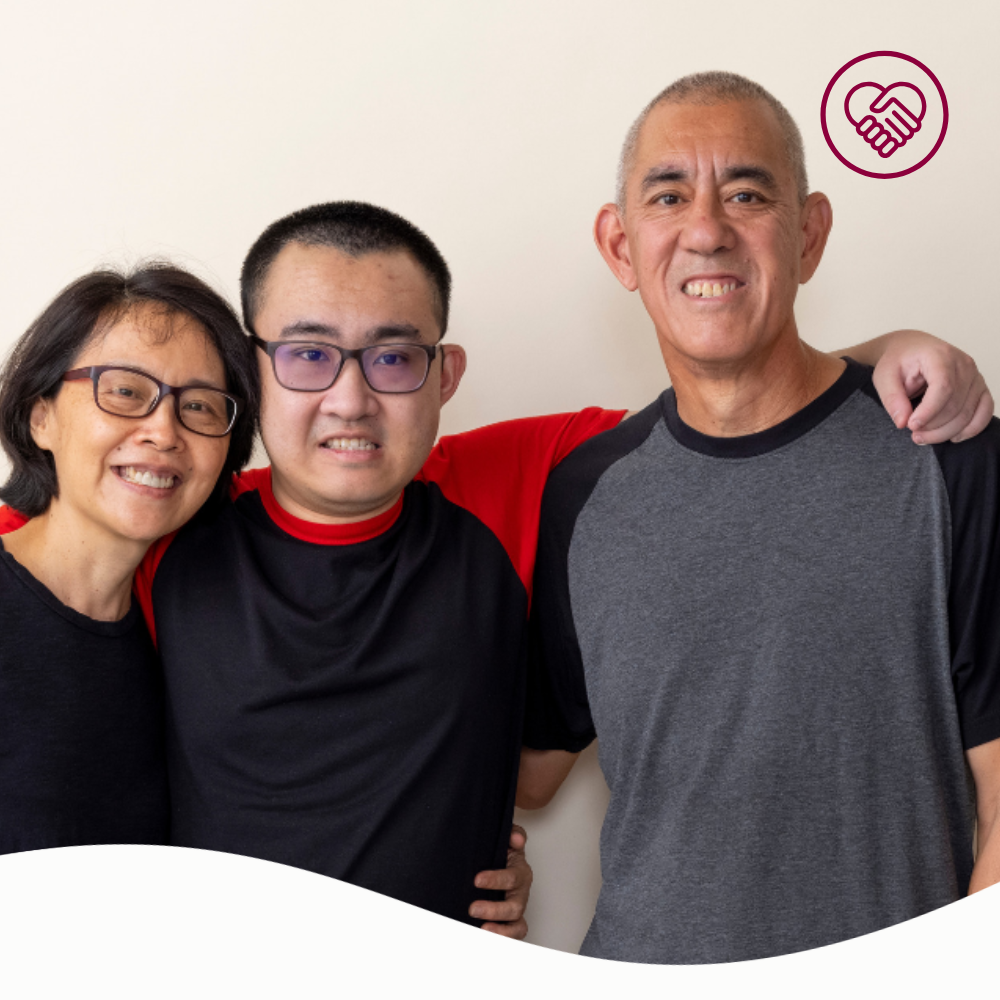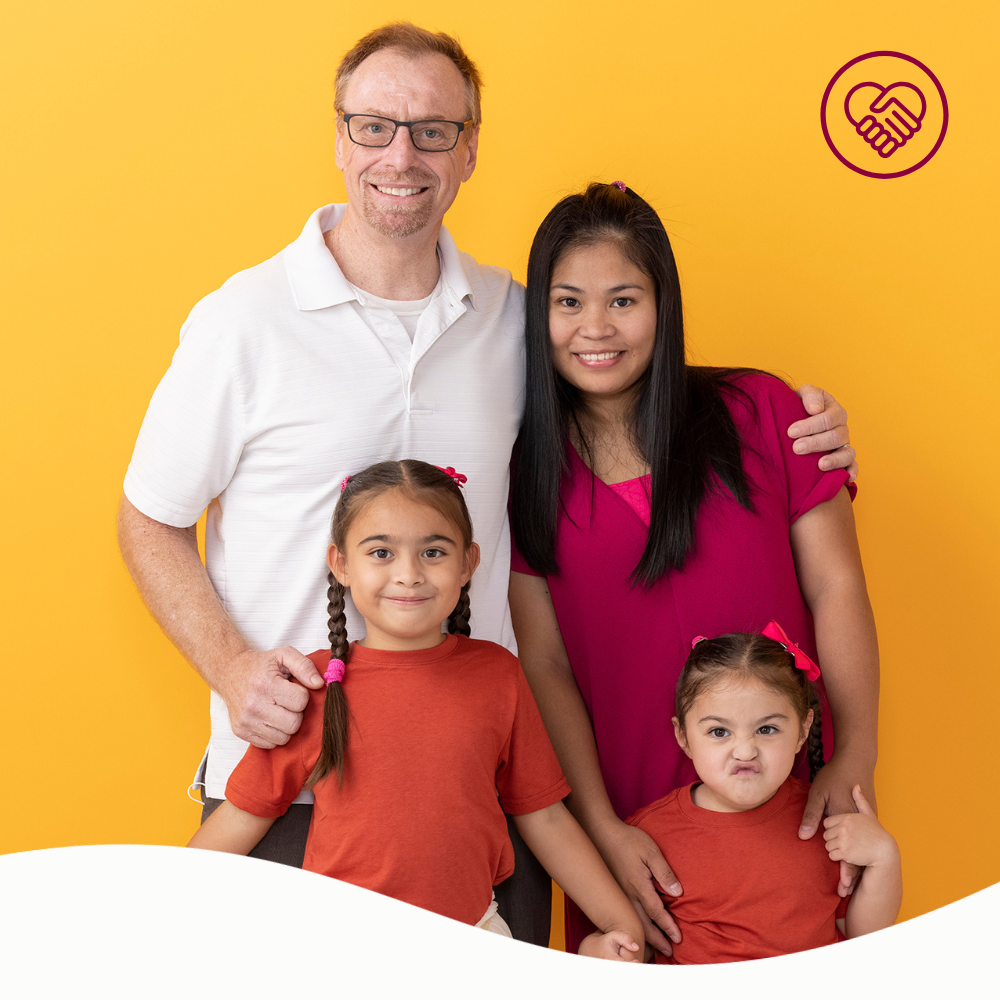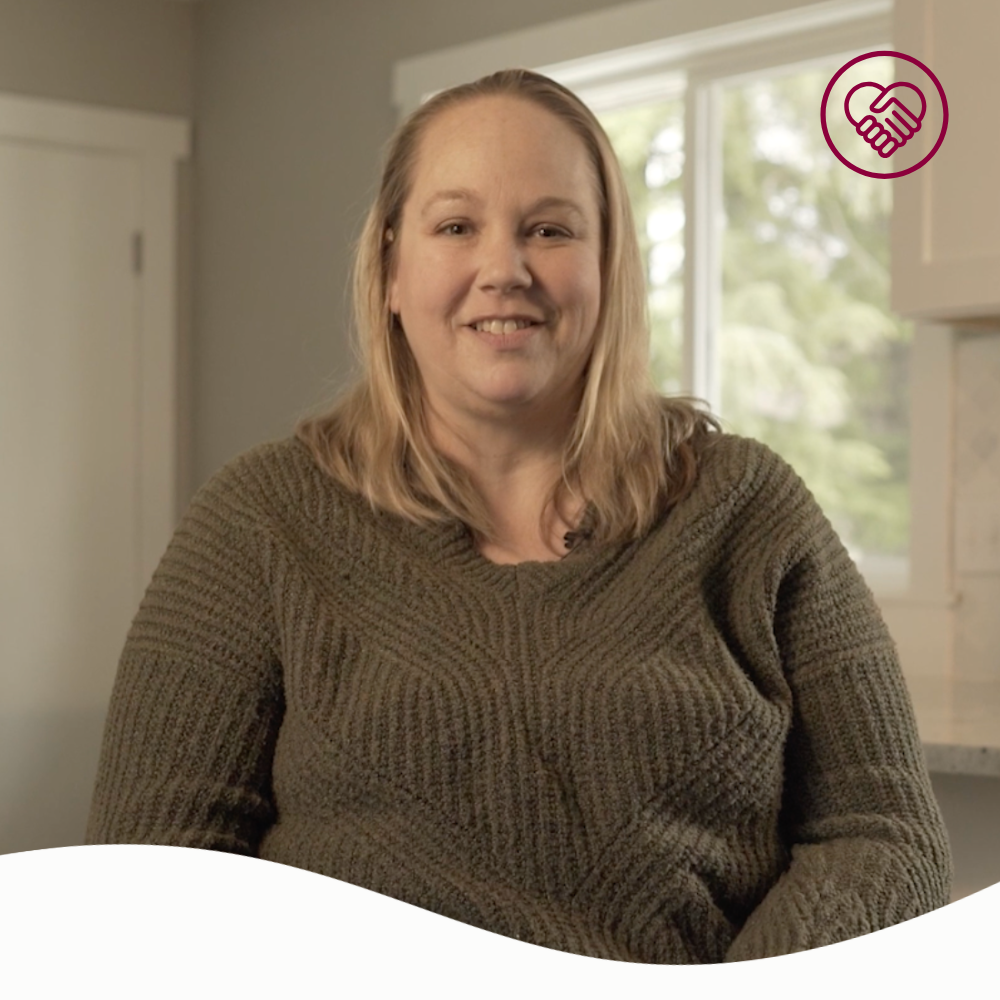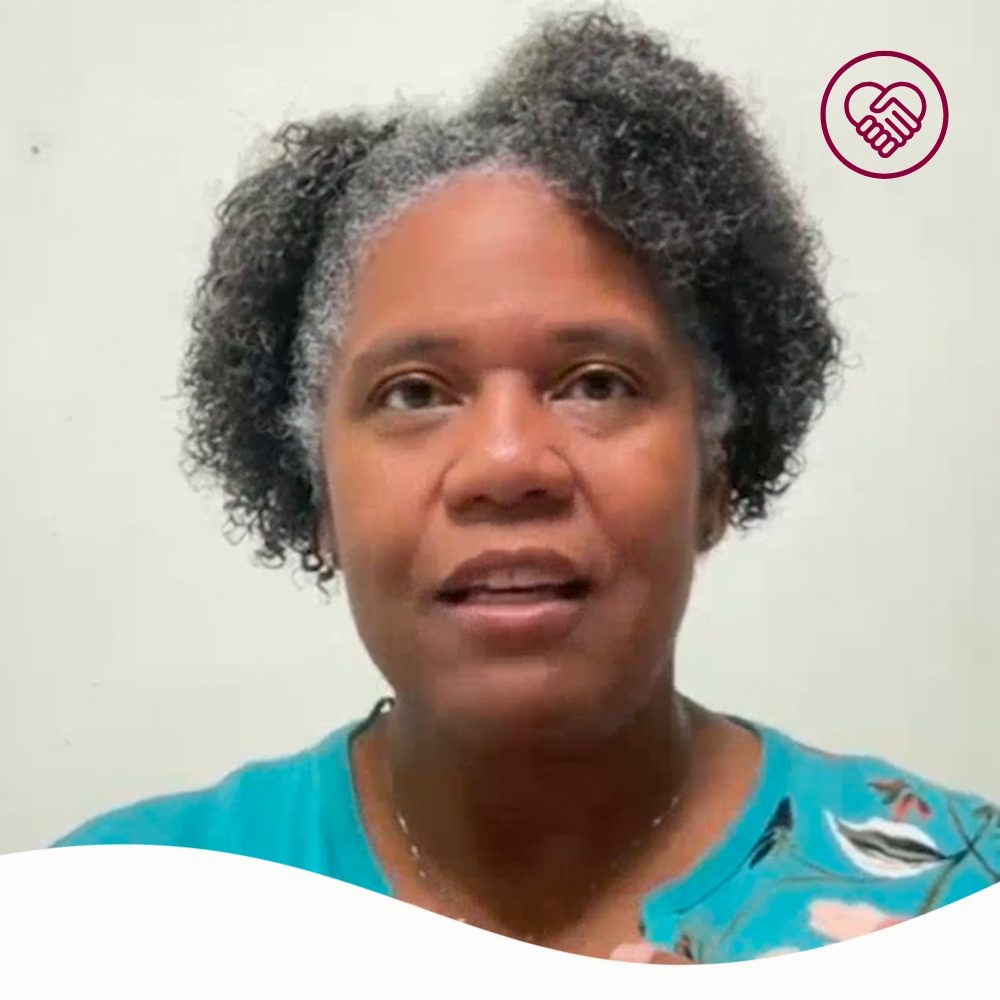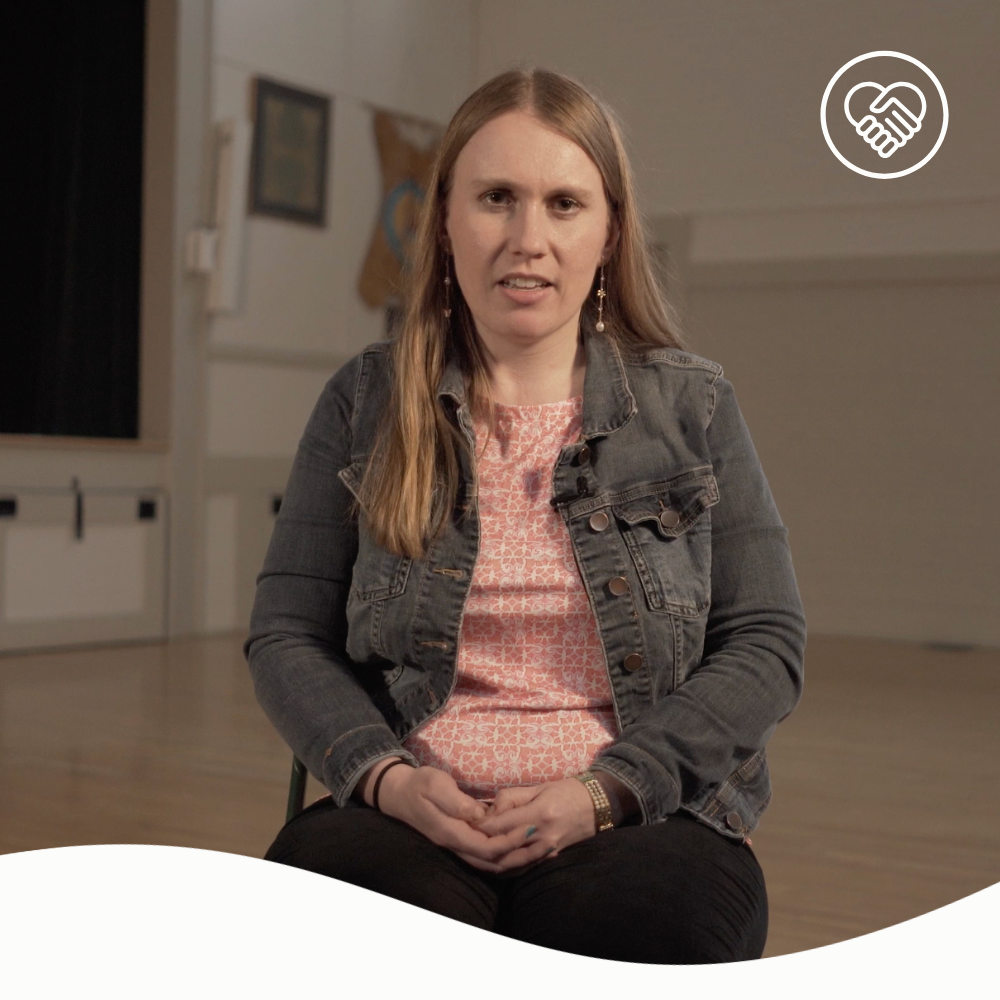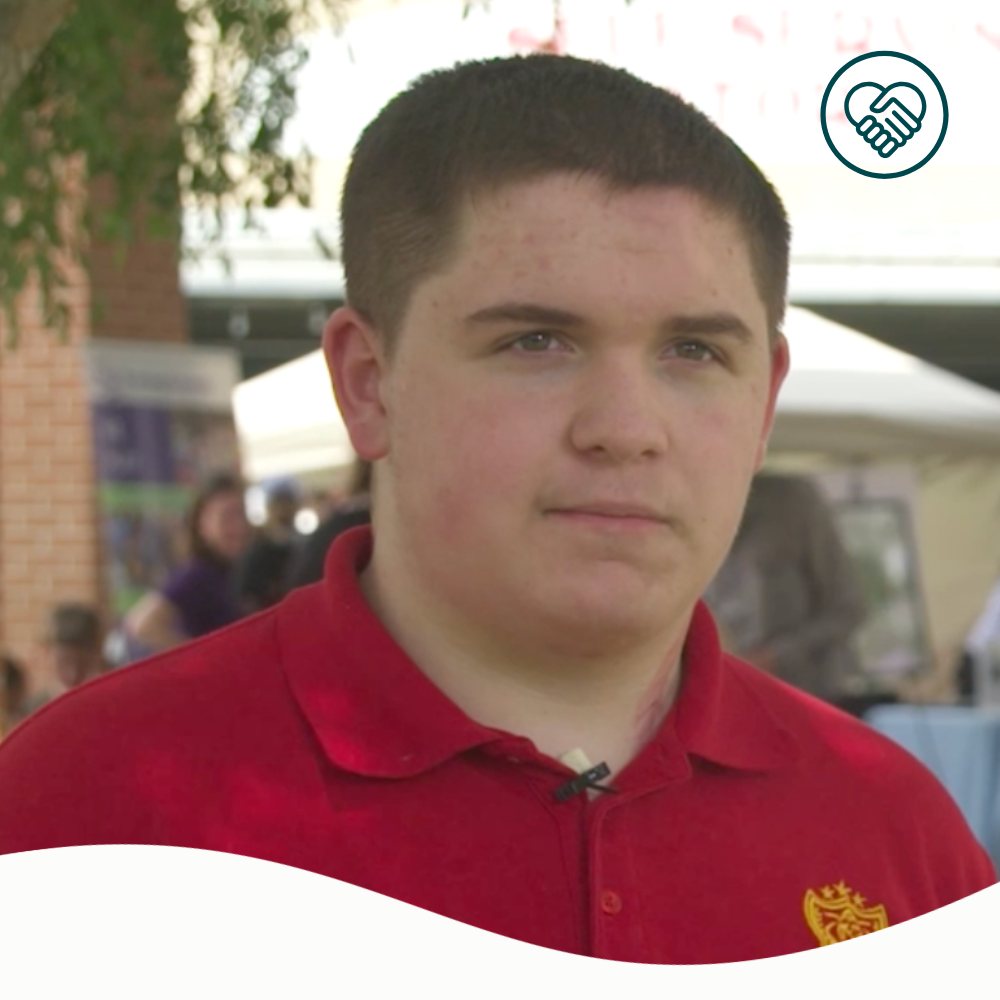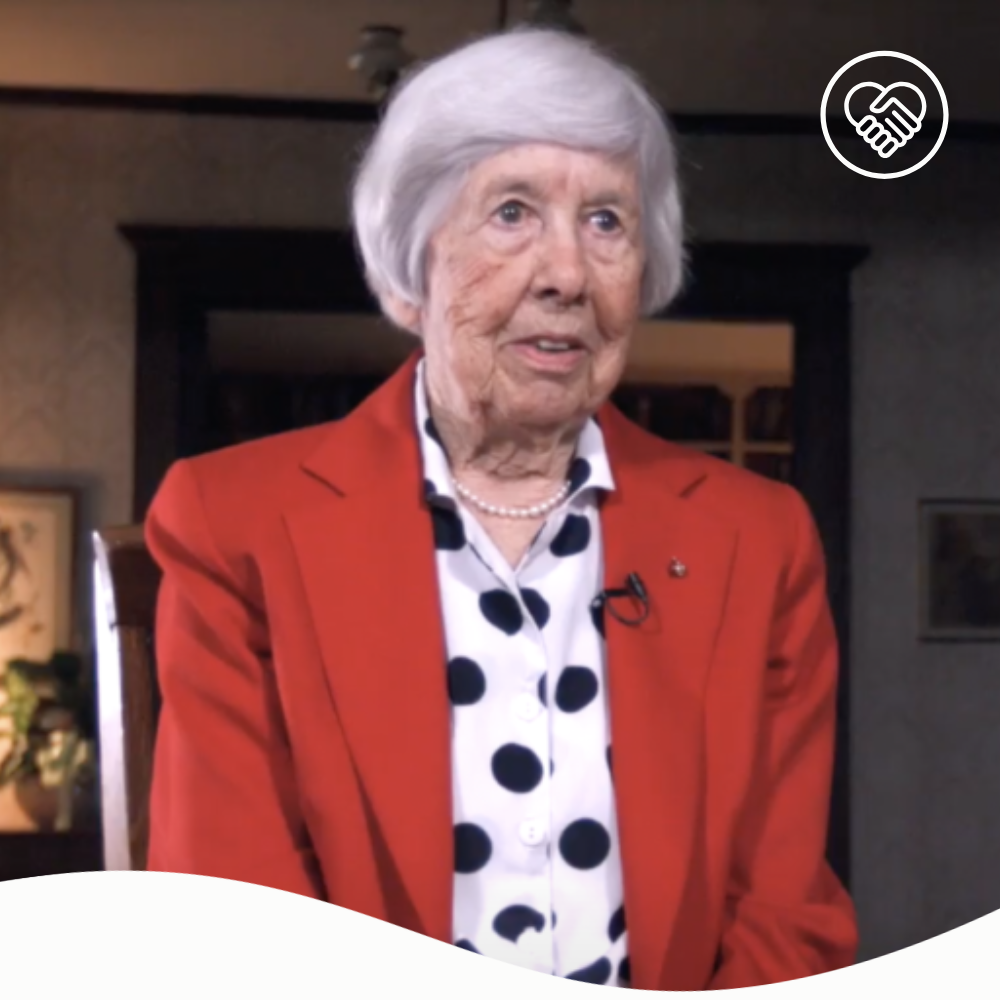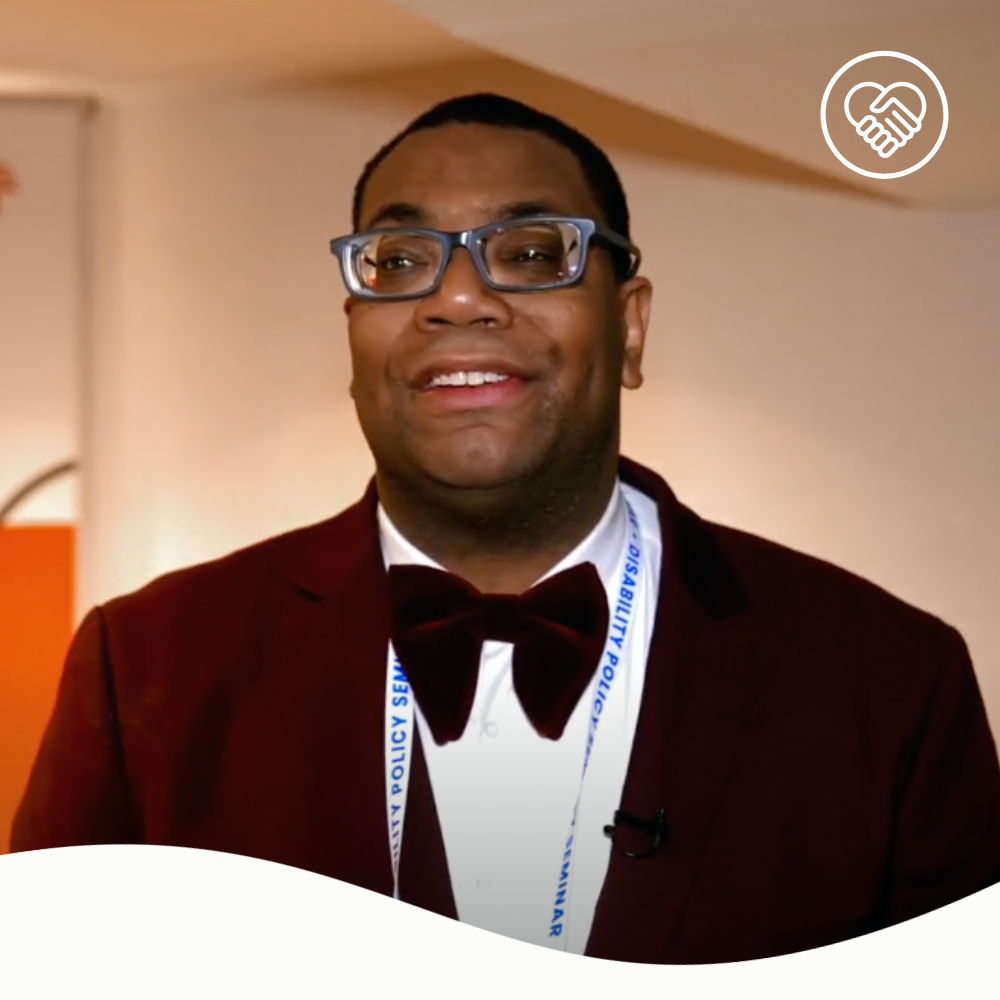Week 8: December 23
National Helpline
Our Gifts of Acceptance campaign highlights diverse, personal, stories from the Autism community to inspire action. Gifts of Acceptance are opportunities for inclusion, supports, services, and the right to live fully. These gifts represent our work in advocacy, justice, employment, safety programming, healthcare, and more.
Finding resources and navigating complicated service systems is overwhelming for many in the Autism community. The Autism Society’s National Helpline offers assistance via phone or email, with navigating services, accessing resources, and understanding Autism-related issues; Our Information and Referral Specialists provide emotional support, referrals to services, and help with education, healthcare, and community integration. *
“I just want to thank you so very much for responding to me with this information. I can’t tell you how many times I have requested information from other places, and I never hear back. I am stuck in the middle of searching the Internet with no real outcomes. I truly appreciate the work you do.” – Helpline Caller and Parent
“You gave me a plethora of information. A real-life compass into the world of Autism. Thank you so much!” – Helpline Caller and Parent
Through this service, the Autism Society aims to reduce feelings of overwhelm, confusion, and isolation within the Autism community, and strengthen connections between the Autism community and resources in their local community.
Approximately 10,000 people contact the National Helpline each year, and over 133k people contact Autism Society helplines nationwide through its entire affiliate network. By supporting the National Helpline, you are ensuring those in the Autism community are connected to the resources they need, when they need them. Join us as we continue to provide this critical service, and meet people wherever they are in their journey.
Our National Helpline Director, Candice Hopkins, shares that “the National Helpline Team works to find the right resources and services, while providing validation and support. Each contact is an opportunity– an impactful moment that helps foster connections that empower people.”
*The Autism Society’s National Helpline is not a crisis line. If you are experiencing a mental health crisis, connect to the Suicide Prevention Lifeline at 988, or 1-800-273-8255, or connect to emergency community services by calling 211.
National Helpline
Finding resources and navigating complicated service systems is overwhelming for many in the Autism community. The Autism Society National Helpline offers assistance with navigating challenges, accessing resources, and understanding Autism-related issue. Our Information and Support Specialists help individuals and families access the resources they need, when they need them. #GiftsOfAcceptance
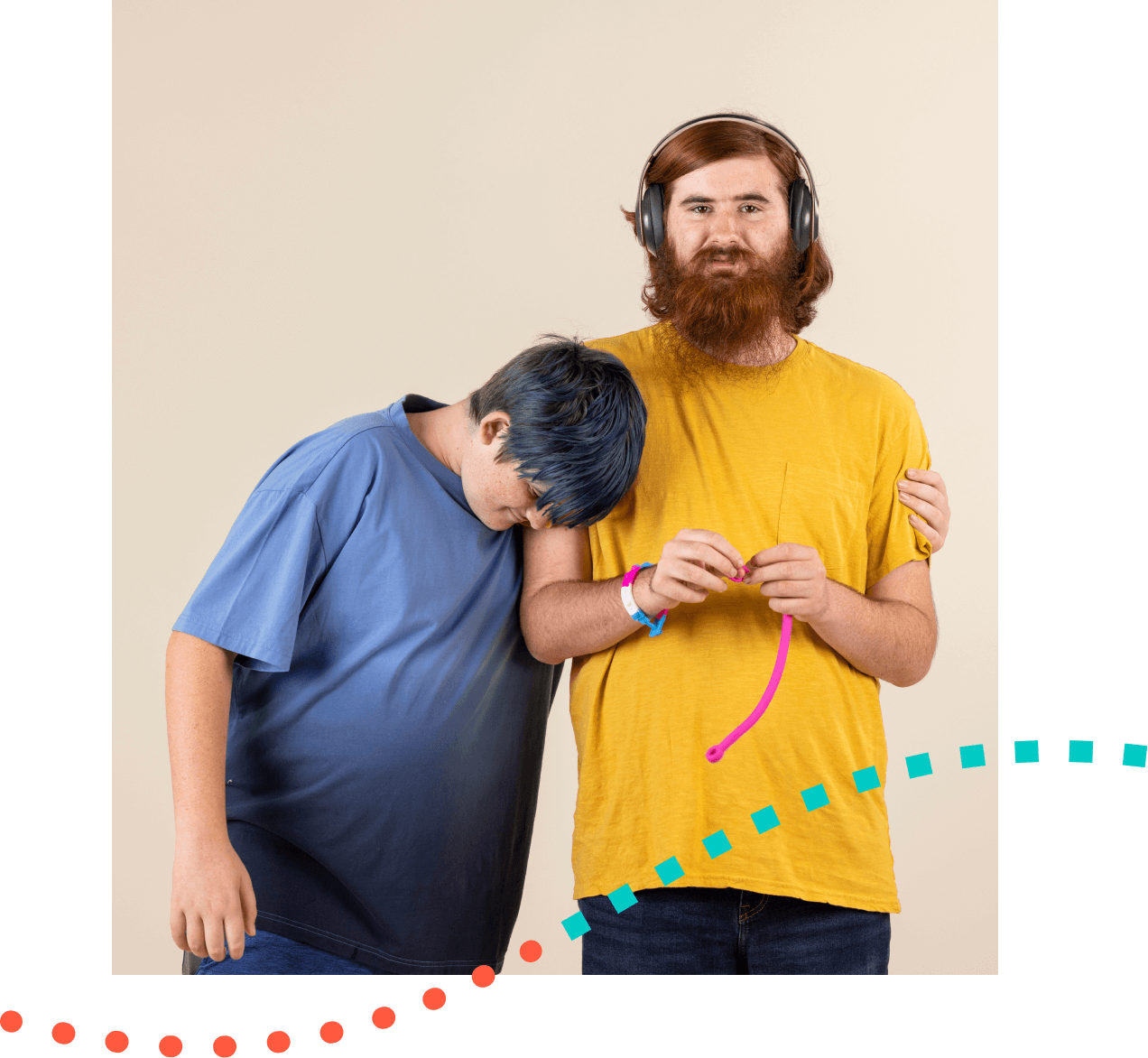

Give
With your support, the Autism Society can continue its critical work through advocacy, education, resources and community programming.
Upcoming Stories
Past Stories
In 2024, the Autism Society of America has worked tirelessly to advocate for the reauthorization of the Autism CARES Act. Through collaboration, determination, and the respect and leadership of our Public Policy team, the Autism Society has been at the forefront of moving this bill.
Over the past two decades, the Autism CARES Act has been a driving force in advancing our understanding of Autism and reshaping support for individuals on the spectrum. The Autism CARES Act of 2024 builds on its legacy by authorizing $2 billion over the next five years to boost Autism research, data collection, and healthcare training to support individuals with Autism.
“It is crucial for us to have the budgetary allowance to continue services for Autistic people around the country as well as fund new research, new services, and opportunities to better serve a diverse, and ever-growing body of Autistic people,” shared Kris King, member of the Autism Society’s Council of Autistic Advisors and Activist.
Collectively, the Autism community must unite to ensure we continue to build a more supported future. Your support allows us to continue our advocacy efforts to help reauthorize this critical law when Congress returns in mid-November.
The Past: Where We Came From
“When we first got a diagnosis for our son we didn’t know what Autism was.” – Ruth Sullivan, Co-Founder of Autism Society of America
When Ruth Sullivan first received an Autism diagnosis for her son, Joseph, the term was a foreign word to most. With little to no services, opportunities, or options for her son to live a fulfilling life, Ruth was unwilling to accept that bleak reality. And so began her lifelong journey to advocate for the Autism community and connect people to resources, services, and above all, each other.
The Autism Society was founded in 1965 by Bernard Rimland, Ph.D., and Ruth C. Sullivan, Ph.D., who also became the organization’s first elected president. In honor of her son, Joseph, Ruth devoted her life and work to Autism, contributing to significant advancements in disability policy and inclusion. The Autism Society has grown from a handful of parents into a nationally trusted thought leader in the Autism and I/DD communities. The Autism Society is the oldest and largest grassroots Autism organization and nationally serves over half a million people per year. For almost six decades, the Autism Society has helped millions of Autistic individuals, their families, and community members through advocacy, education, resources and community programming.
The Present: A Blend of Progress and Growth
By: Hari Srinivasan, Ph.D Candidate, Scientist, minimally-speaking Autistic, Activist
Over the past six decades, the Autism Society has made significant strides in fostering awareness, inclusion, and advocacy for the Autistic community. Through extensive advocacy, the Autism Society has driven important legislative changes and provided invaluable resources for Autistic individuals, families, and allies across varying support levels. However, despite this progress, more can be done to engage those whose experiences are often underrepresented — such as individuals with higher support needs, communication challenges, or complex medical conditions.
The Autism Society must continue advocating for policy and research that go beyond dominant, one-size-fits-all interventions, ensuring diverse solutions and better quality of life for all. It is essential that traditional practices do not overshadow the lived experiences of those most affected.
As an Autistic advocate and researcher, I believe this blend of progress and growth will shape the Autism Society’s future work. Combining scientific rigor with personal experiences offers hope for a more inclusive, comprehensive approach to Autism advocacy.
The Future: Rock On
JB Brown, Program Manager, Safety on the Spectrum: First Responder
My son Wyatt has taught me more about resilience than any other experience in my 42 years on earth. His ability to navigate a world that isn’t designed for him, to find meaning in things that I can’t hear or see, and to persevere over constant physical and emotional challenges, it gives me so much pride as a father. And in caring for him, I’ve discovered a well of strength in myself that I never knew existed.
So here I am, a caregiver, a dad, and an aspiring optimist. There is no end in sight, but I wouldn’t trade this experience for anything. Wyatt has taught me about love, patience, and connection more than any other philosophy or experience ever could. And for that, I am eternally grateful.
As we look ahead, we continue our essential work to create connections, build more opportunities, and remain rooted in hope for a better future. Your support allows the Autism Society to expand its reach and program offerings for another sixty years, and beyond.
“I had multiple interactions with police officers and paramedics…and it definitely helps that they know what I am struggling with. I am unique like every other human.” – Austin, Autistic Advocate
Interactions between first responders and Autistic individuals can be misunderstood, stressful, and over-stimulating. Too many of these events result in restraint, arrest, improper use of force, physical and emotional trauma, and even death. The Autism Society’s First Responder Program is a national effort to promote safe and equitable interactions between First Responders and the Autism community.
With improved training, first responders will be able to better recognize when someone is Autistic, and utilize techniques and tools that improve interactions, and positive outcomes.
“I have had a lot of interactions with police officers, firefighters, and EMS. A lot of people with disabilities are scared of police officers. You don’t have to feel scared. They’re there to help you; to help protect you and your community.” – Brady, Autistic Advocate
By supporting the Safety on the SpectrumTM: First Responder Program, you are creating more informed and trained first responders to keep our community safe.
The Autism Society’s Employment Initiative seeks to focus on an Autistic individual’s strengths, goals, and personal employment journey. We must normalize that employment can mean part-time, full-time, volunteer, internships, and more. With simple accommodations and natural supports, employers can tap into a skilled population of potential employees.
“I’m in a transitional program and they are helping me with getting work and navigating all the social aspects of it. And I had a job coach who described to my boss the strengths and weakness of Autism; and when my boss heard about it, she was very understanding and treats me the same way that she treats everyone else,” shared Lauren, a person with Autism.
Did you know that nearly half of workplace accommodations can be implemented at no cost to employers? Accommodations that do incur a one-time cost, have a median expenditure of $300. Supports are cost efficient, effective and build a more inclusive workplace. With your support, we can continue to break systemic barriers to employment for Autistic individuals.
Written By: Jennifer Berzok, Parent
“When my son was little, he was terrified of the dentist and doctors. I remember when we first took him to the dentist—he couldn’t even sit in the chair. But over time, with a lot of patience, the dentist worked at his pace, doing a little more at each visit until he became one of their best patients. This kind of flexibility and understanding of sensory needs made all the difference. Similarly, his pediatrician used to meet him in the car when he was too scared to enter the office. Accessible healthcare means recognizing these unique needs and being willing to adapt.
Healthcare barriers for individuals with intellectual and developmental disabilities, like my son Ben, are immense. One of the biggest challenges is his inability to accurately describe pain or symptoms. For example, he might say his throat hurts when it’s really his stomach, or not mention a severe issue until it’s almost an infection. Doctors often don’t have the training to communicate with someone like Ben. We’ve had frustrating experiences where a lack of understanding led to serious health issues being overlooked or dismissed, simply because he couldn’t articulate what he was feeling in a way they expected.”
The lack of knowledge on how to properly interact with, and treat, neurodiverse individuals is a pervasive issue, and it’s directly harming this vulnerable population. This gap in understanding and care has only made our advocacy in the medical field more critical. We are fighting not just for better healthcare, but for the knowledge and training that will allow medical professionals to offer the kind of care that all individuals deserve. With your continued support, the Autism Society can provide accessible healthcare training to providers and advocate for inclusive care.
It Takes Two
Written By: Jennifer Barker, Parent
I was a proponent of water safety from the beginning. I got him started in swim lessons before he was even diagnosed with Autism. He was just not really catching on to it; which makes sense now because of the gross motor delays. He started the swim classes with the water safety component.
He ended up getting away when the instructor was not there on day; and actually, eloped at the pool. He ran laps around the pool area; which is super dangerous. And he could not swim at that point; even though he was three years into swim lessons. He still could not coordinate his body enough to swim.
We live in North Idaho and there is water everywhere. It’s the thing we like to do as a family; going to the lake. Sensory-wise, he did not care to wear a life vest and he also could not swim and was very drawn to water. So he would just wander into the lake and thankfully I was aware of all these things; that he was going to do this. But it only takes 2 seconds to get over his head.
It’s such an important thing to have that awareness of water safety and awareness of how to swim.
He is almost 6 and has finally learned how to swim.
The Autism Society’s Water and Wandering Program is a national effort to increase water safety education and training across the Autism community. The program works to not only prevent wandering-related tragedies, but to increase water safety skills among Autistic individuals and their families. Together, we can keep the Autism community safe from water and wandering.
The Autism Society Training and Resource Center offers essential online training and educational resources tailored to support the diverse needs of the Autism community. The course curriculum supports our National Programs, with the intent to provide specialized training to professionals, educators, first responders, community members, and more to build inclusive, and supported communities.
To date, we have released the Foundations of Autism course pack, Becoming an Autism-Informed Organization courses, and Accessible Vaccination course.
“This course definitely shifted nicely “Beyond the Basics” to a level of depth where I learned something new in each chapter. It presented a wide breadth of relevant factors and experiences in an unbiased manner. The content of the course focuses on communication, thinking styles, and sensory processing and is very helpful to understanding the varying perspectives and experiences of the community. I really liked the “Autistic voices” buttons, they were well placed and helped make the content tangible.” – Foundations of Autism Course Package Participant
“After growing up seeing the impact visible and invisible disabilities have had on friends, family, and myself, I wanted to combine my passion of helping others with my love of recruiting and have been an active member of the Capabilities First Recruiting team at Kimberly-Clark for the last few years. I am really excited about this training as I have the belief that if something can help one group of individuals, then it can likely help everyone. I look forward to helping make KC a more open and understanding place where everyone can bring their whole selves to work and be successful every day.” – Megan, Kimberly-Clark Employee
Finding resources and navigating complicated service systems is overwhelming for many in the Autism community. The Autism Society’s National Helpline offers assistance via phone or email, with navigating services, accessing resources, and understanding Autism-related issues; Our Information and Referral Specialists provide emotional support, referrals to services, and help with education, healthcare, and community integration. *
“I just want to thank you so very much for responding to me with this information. I can’t tell you how many times I have requested information from other places, and I never hear back. I am stuck in the middle of searching the Internet with no real outcomes. I truly appreciate the work you do.” – Helpline Caller and Parent
“You gave me a plethora of information. A real-life compass into the world of Autism. Thank you so much!” – Helpline Caller and Parent
Through this service, the Autism Society aims to reduce feelings of overwhelm, confusion, and isolation within the Autism community, and strengthen connections between the Autism community and resources in their local community. Approximately 10,000 people contact the National Helpline each year, and over 133k people contact Autism Society helplines nationwide through its entire affiliate network. By supporting the National Helpline, you are ensuring those in the Autism community are connected to the resources they need, when they need them. Join us as we continue to provide this critical service, and meet people wherever they are in their journey.
Our National Helpline Director, Candice Hopkins, shares that “the National Helpline Team works to find the right resources and services, while providing validation and support. Each contact is an opportunity– an impactful moment that helps foster connections that empower people.”
*The Autism Society’s National Helpline is not a crisis line. If you are experiencing a mental health crisis, connect to the Suicide Prevention Lifeline at 988, or 1-800-273-8255, or connect to emergency community services by calling 211.

